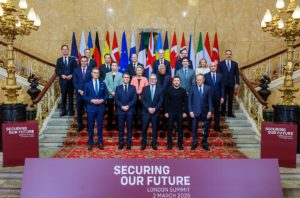Understanding the Complex Dynamics of the Russia-Ukraine Conflict: Insights from Extreme Investor Network

In the rapidly evolving geopolitical landscape, decisions made by world leaders can dramatically alter the course of entire nations. A question that continues to arise among interested observers is the strategy behind Russia’s response to cease-fire proposals from Ukraine and Western powers. Can we discern the motivations behind these moves, especially with the backdrop of increasing tensions in the region?
The Complex Web of Trust and Strategic Calculations
One reader recently posed the question: "Did your sources tell you that Putin would reject the complete cease-fire?" The answer lies not just in reliable sources but also in understanding the political frustrations that fuel this conflict. Putin’s refusal to fully accept a cease-fire can be interpreted as a strategic choice born from distrust and a desire to protect national interests.
While negotiating peace talks, it’s crucial to grasp the underlying motives on both sides. The European nations, often seen as the architects of the current military posture, have arguably contributed to an atmosphere of suspicion. Russian President Vladimir Putin recognizes that Ukrainian President Volodymyr Zelensky may not have the autonomy to maneuver freely without the influence of NATO and other foreign interests. This dynamic raises concerns about any potential agreements made under duress.
The Quest for Military Buildup and Geopolitical Games
The continuing emergence of military alliances has created an imbalanced scale that favors a heightened risk of conflict. Putin, wary of what he regards as "fake peace deals," finds himself pitted against a united front of Western powers. Allegedly, these powers are invested in a military escalation rather than a peaceful resolution, reminiscent of historical precedents where negotiations were merely a smokescreen to mask aggressive ambitions.
The discussion has evolved to include assertions that European leaders are acting as pawns in a much larger geopolitical game orchestrated by neoconservative ideologies. Critics of such approaches emphasize that these struggles don’t just threaten Eastern Europe; they jeopardize economic stability across global markets. Here at Extreme Investor Network, we believe it is vital to explore the long-term economic implications of such actions.
Analyzing the Economic Consequences
As the situation develops, investors and economic analysts need to keep a close eye on how military actions influence markets. Historically, instances of heightened conflict result in volatility within commodities and stock markets, particularly those tied to energy supplies and defense contracts. The ripple effects can alter investment strategies for years to come.
Recent computer models projecting economic outcomes in terms of conflict resolution signal unpredictable futures. Even if a political leader, supported by companies like BlackRock, promises substantial investments in war-torn regions, the reality often diverges from predicted optimistic forecasts.
Take, for example, the notion that Ukraine might not survive this resurgence of warfare. The stark reminders of past conflicts and their economic repercussions loom large, highlighting the necessity for caution.
Understanding Historical Contexts and Future Prospects
Future generations must learn from the past, particularly in recognizing how words spoken by politicians can steer their countries into calamity. Each time a politician labels a piece of legislation—be it an act of war or diplomatic negotiation—the people must question its true intent.
Furthermore, unique relationships, such as those between nations—be it Russia and China or the intricate ties within Europe—play a significant role in shaping international relations. Should tensions escalate, these partnerships may shift, leading to new alliances with profound economic ramifications.
Conclusion: A Call to Awareness and Action
With fractious sentiments brewing across borders, it is important for the public to remain engaged and informed. At Extreme Investor Network, we advocate for critical thinking and comprehensive analysis regarding international relations and economic developments. The outcome of the Russia-Ukraine conflict, influenced by trust, military strategy, and economic consequences, serves not only as a historical lesson but as a call to action for future negotiations.
Our readers are encouraged to ponder this pressing question: What sacrifices are we willing to endure in pursuit of peace, and how can we safeguard our global future amidst the raids of ambitious neoconservative agendas?
Stay informed with Extreme Investor Network as we navigate these complexities, offering unparalleled insightsinto the intersection of economics and geopolitics. Together, we can explore a clearer path forward.

